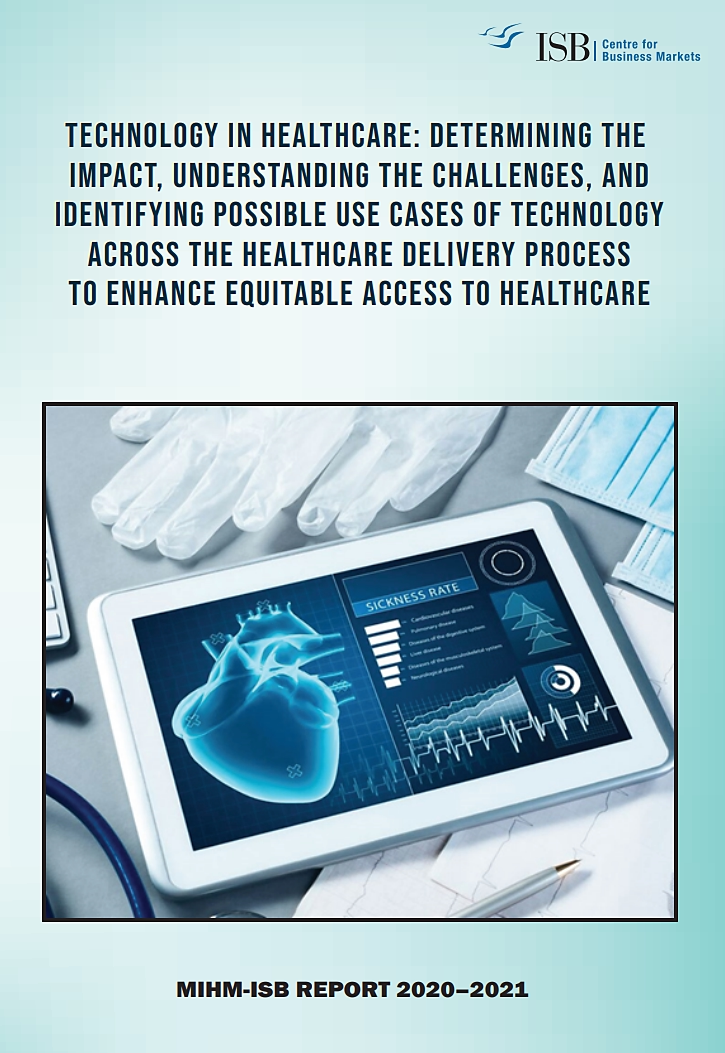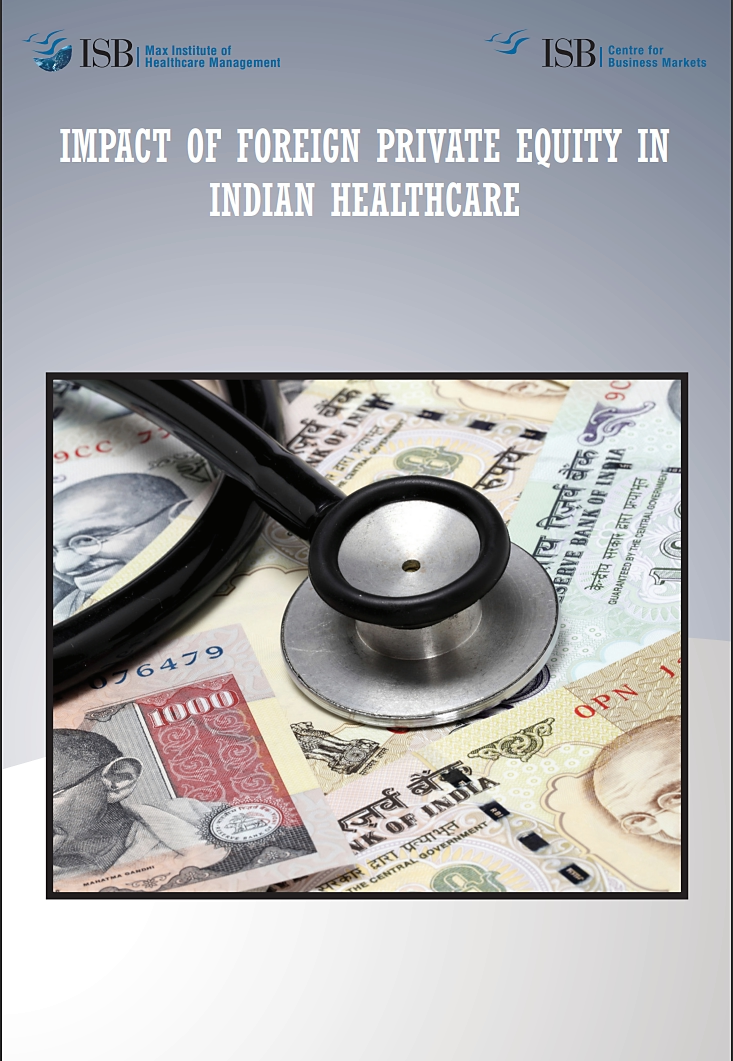Evaluation of a novel community-based chronic disease management solution
The report critically evaluates an operating model (NanoHealth) that leverages a unique combination of community healthworkers and a proprietary technology platform to facilitate early diagnosis and continuous management of chronic NCDs such as Diabetes and Hypertension. In particular, the authors undertook a detailed operational evaluation of one such social enterprise model and draw implications for the wider ecosystem and the challenge of NCD management at a national level. The report talks about the impact of NanoHealth on the health outcomes of its users by analysing the operational and financial feasibility of its model using its two-year operational data.
Impact: The manuscript provides insights on an alternative operating model that can be integrated with the existing health systems, public and private, to provide long-term care for chronic diseases where the government can look into contracting services to these models.
Theme: Tackling the challenge of non-communicable diseases
Funder: Pro bono
Authors: Sarang Deo, Preeti Singh
Identifying enablers and barriers for healthcare organizations to deliver equitable healthcare in a sustainable manner
India and many other emerging countries face an uphill task of providing healthcare on an equitable basis to all irrespective of their ability to pay. This is in stark contrast to many developed countries, where good healthcare is guaranteed for all its citizens. Barring a few exceptions, outside the realm of eyecare, there have been few success stories with regard to addressing the healthcare needs for other medical specialities. This report seeks to understand the barriers and enablers for providing equitable healthcare across various medical specialities. The insights have been garnered through primary research based on discussions with over 30 leaders spanning different organizations, medical specialities, and geographies in India. The key learning from this research is that it is possible to do good, while also doing well.
Impact: This study identifies acknowledging and measuring equity as one of the key aspects of equity in healthcare delivery. To deliver equitable healthcare, healthcare organizations need to recognize the inequities in the health of the communities and delivery of healthcare. Further, the inequities vary from one place to another.
Theme: Promoting equitable healthcare in a sustainable manner
Funder: Ernst & Young as part of the EY-IEMS Grant 2018–2019
Authors: D V R Seshadri, Devendra Tayade, Prakash Satyavageeswaran, Thulasiraj Ravilla
Technology in Healthcare: Determining the impact, understanding the challenges, and identifying possible use cases of technology across the healthcare delivery process to enhance equitable access to healthcare
The range of possible technologies in the healthcare sector is enormous. India’s healthcare industry comprises hospitals, medical devices, health insurance, telemedicine, and medical tourism. The technology has advanced significantly, and the estimate is that effective implementation can result in care that is both higher in quality, more responsive to patient's needs and, at the same time, more efficient (affordable and accessible).
This report studies the impact of technology on healthcare. It highlights various healthcare organizations, including established hospitals, healthcare centres, and healthcare start-ups, that have employed the latest technologies and have been a testimony to quality healthcare. This study also emphasizes several concerns and challenges that these organizations have witnessed in adopting the technologies and how they affect various stakeholders. In addition, the study also examines several technological solutions that healthcare organizations used to deliver high-quality care at each stage of healthcare delivery.
Impact: The insights will help understand the similarities and differences in the approaches employed and help establish the potential benefits and drawbacks of policies and frameworks affecting the different programmes, projects' structure, design, implementation, and outcomes.
Theme: Technology for enhancing equitable access to healthcare
Funder: Max Institute of Healthcare Management
Authors: D V R Seshadri, Madhu Vishwanathan, Ratna Geetika
Impact of foreign private equity in Indian healthcare
The increase in focus on healthcare in recent times has accelerated private equity (PE) investments, both locally and from overseas. Further, there is also a growing emphasis on the emergence of public-private partnership models in India’s healthcare sector. The country’s relative cost advantage and the availability of skilled labour make it a favourable destination for investments. The government is also taking initiatives to strengthen the healthcare sector. Together, these factors create several opportunities for investment in India’s healthcare industry. The investments are flowing in to enhance healthcare delivery to metropolitan cities, as well as Tier 2 and 3 cities, which offer attractive investment opportunities.
This report highlights the challenges and benefits of PE investments from the perspective of various key stakeholders, including doctors, patients, and other hospital staff. The need for PE investments primarily arises due to the hospitals being cash-starved. From the perspective of a foreign PE investor, the motives include expanding the footprint in India and an opportunity for attractive profits. PE firms usually invest in Indian hospitals, intending to grow rapidly while gaining quick returns on their investments and, in the process, also grow the investee hospital.
Impact: A successful deal requires considerable effort from investors and investee organizations. If the PE investments are well-orchestrated, efforts by all the stakeholders, including the government, could lead to successful outcomes that positively impact the quality of healthcare in the country.
Theme: Impact private equity in healthcare
Funder: Max Institute of Healthcare Management
Authors: D V R Seshadri, Raghu Bommaraju, Ratna Geetika








